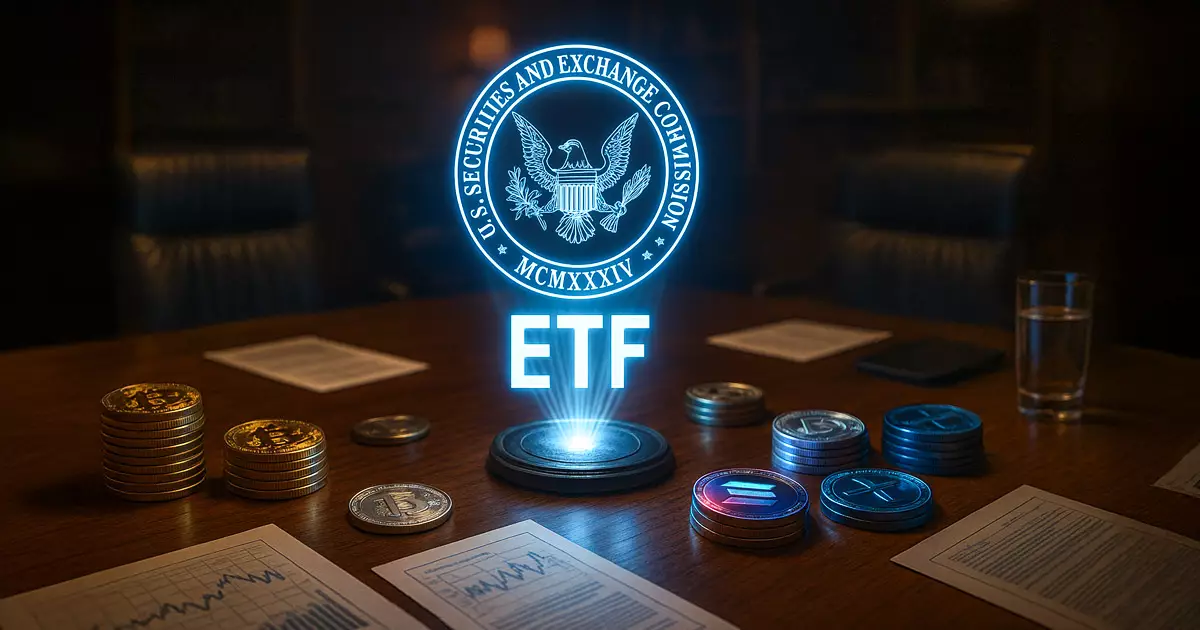The recent postponements by the Securities and Exchange Commission (SEC) on nine cryptocurrency ETF applications raise more questions than answers. While official reasoning centers around the need to create a comprehensive regulatory framework, this move seems to reflect a cautious, perhaps even manipulative strategy to maintain control over the rapidly evolving digital asset space. From a centrist-liberal perspective, it’s alarming how regulatory inertia is weaponized to stifle innovation—particularly in a sector that promises economic dynamism and financial inclusion. Instead of encouraging responsible growth, the SEC appears intent on delaying, stalling, and ultimately limiting market entry for promising crypto products.
Delays as a Tactic: A Barrier for Innovation
The delay tactics are not arbitrary. They are a calculated effort to buy time, allowing regulators to craft what they claim will be a “robust” framework. Yet, the reality points to a form of bureaucratic conservatism that hampers innovation. These delays disproportionately impact forward-thinking companies seeking to legitimize their crypto offerings. The plan to establish “generic listing standards” suggests the SEC wants to evolve from a case-by-case approval model—one that’s inherently unpredictable—to a system of predefined criteria that may favor existing financial incumbents over decentralized, innovative projects. This move risks turning the cryptocurrency space into a playground for big players and regulatory insiders, smothering decentralization in the process.
The Fear of the Unknown: Stifling Progress Under the Guise of Caution
The SEC’s hesitation signals a deep-seated fear of disruption. While safeguarding investors is vital, excessive caution morphs into outright suppression. The notion that a clear and uniform set of standards will emerge seems positive at first glance; however, it also opens doors for regulatory capture, where standards are shaped to protect entrenched interests rather than fostering fair competition. The delay in approving ETFs tied to cryptocurrencies like Bitcoin, Ethereum, Litecoin, and even Dogecoin isn’t just about oversight—it’s a strategic attempt to cement an old-fashioned financial order that resists digital transformation.
Implications for Market Growth and Innovation
From a centrist-liberal standpoint, these delays stifle the growth of a promising sector that could democratize investing and create new avenues for wealth creation. Cryptocurrency ETFs have the potential to legitimize digital assets, encouraging wider adoption and fostering a healthier, more competitive financial ecosystem. Instead of facilitating innovation, the SEC’s cautious tactics promote stagnation, allowing traditional finance to entrench its dominance at the expense of progress. For all the talk of investor protection, the real motivation seems rooted in maintaining the political and economic power of legacy institutions that view crypto as a threat.
Futility or Strategy? The Future of Crypto ETFs
While some analysts suggest that the delays are part of a broader strategy to set standardized rules, this approach raises doubts about the SEC’s commitment to a genuinely open financial future. The proposed “generic listing standards” could effectively turn crypto ETFs into a checkbox exercise controlled by regulatory elites, inhibiting genuine innovation. Market participants are eager for clarity, but only if it genuinely promotes competition and transparency—not if it serves as just another bureaucratic hurdle to prevent disruption. If the U.S. regulators truly want to embrace the potential of digital assets, they must abandon their cautious retreat and adopt a more transparent, facilitative stance that values innovation over preservation of the old order.

